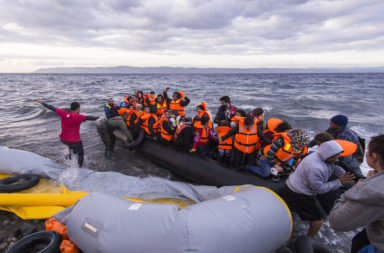Sigmar Gabriel, the German economic minister and deputy to Chancellor Merkel, doesn’t want Britain let off too easily.
Gabriel says they shouldn’t be allowed to “keep the nice things” about being part of the EU without having to pay for them or take responsibility for the damage done to the EU by their leaving.
The economic minister recently became known as a viral sensation for responding to right-wing protesters with a “certain gesture”… showing that he knows how to show tough love:
@MinistryBrexit Brexiteers threaten protests if Brexit thwarted. Here’s how one man responded to fascist protesters: https://t.co/rSCB5R3jFb
— Chris Webster (@chrismhw) August 28, 2016
- Since the UK wants to abandon the idea of free movement of people due to immigration concerns, it follows that they shouldn’t be allowed benefits like access to the bloc’s 500M consumers in the single market.
- The risk of letting the UK leave without consequences is that other countries in the Union may decide to follow and the EU would, in his words, go “down the drain.”
- So, it’s more of a political and psychological problem than an economic one according to him.
The economic implications won’t be immediate. The current EU budget lasts until 2020, and the UK’s contributions until then will be seen as an obligatory goodwill gesture toward Europe. According to EU Commission data from 2015, the UK contributes 12.6% of the EU’s total revenue after rebates. For comparison, Germany represents 21.4%, France 15.7%, Italy 11.5%, and all others combined are 38.9%. So the 12.6% burden left behind by the UK will have to be picked up by the other contributor member states, while the net recipient states will have to live with receiving less.
Germany, as the economic powerhouse of the EU, has been the center of attention for all of the remaining EU states as they search for a way to mitigate crisis after the June Brexit vote.
Chancellor Angela Merkel said on Sunday that “Rather than rushing into activities, we should perhaps first take time to think about what we, as the 27 countries, must do better….If you do it wrong from the beginning and you don’t listen – and act just for the sake of acting – then you can make many mistakes.”
So the EU leaders will follow Germany’s lead and look for solutions at a responsible pace during their talks. In mid-September, they will hold a summit in Bratislava on the subject, but the UK won’t be joining the summit since a UK government spokesperson said that Theresa May won’t be a part of formal talks with the EU until the end of the year.




